Nuclear veteran Terry Quinlan wins shrapnel claim six decades on
- Published
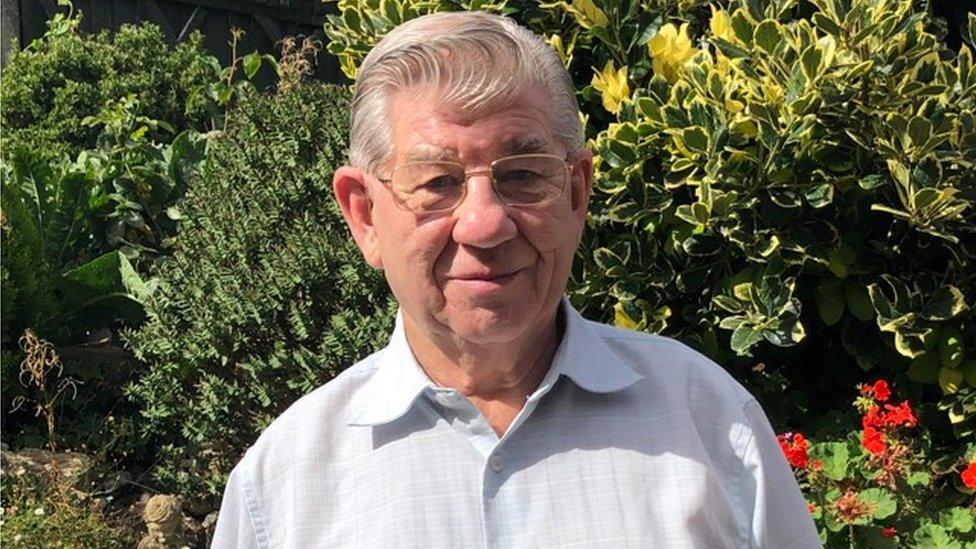
Terry Quinlan saw four bomb blasts on Christmas Island in 1958
A former Army driver who witnessed a series of British nuclear weapons tests has won a compensation claim for a shrapnel injury more than 60 years on.
Terry Quinlan, from Kent, saw four detonations in tests at Christmas Island in 1958.
A tribunal heard how, after a blast, he felt something hit his throat as the shockwave threw debris in the air.
The wound healed and it wasn't until he had heart surgery in 2004 that a surgeon removed metal from his chest.
Mr Quinlan's appeal against a decision in 2019 by the defence secretary to reject his claim was heard by a war pensions tribunal last week - on the same day that the prime minister announced the nuclear veterans would receive medals.
A tribunal judgement handed down later accepted he had a piece of metal in his chest and stated the question was whether it could be attributed to his service - but said that reasonable doubt should be given to Mr Quinlan.
Mr Quinlan also made a claim for hearing loss, which was rejected by the tribunal.
His solicitor Simon Ellis said another claim linking Mr Quinlan's tumours to radiation was withdrawn before the hearing because of a lack of medical evidence.
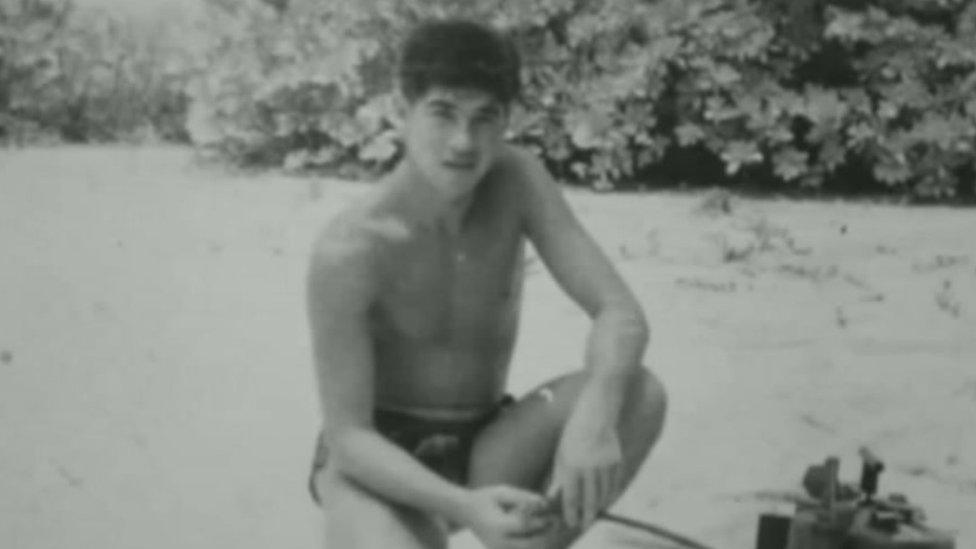
Then 18, Mr Quinlan felt something hit his throat in the shock wave
After his tribunal, Mr Quinlan said he welcomed the decision over his shrapnel injury and he intended to keep fighting for other injuries to be recognised.
He is still waiting to hear the final compensation figure.
A spokesman for the Ministry of Defence (MoD) said: "We are grateful to all service personnel who participated in the British nuclear testing programme and contributed to keeping our nation secure.
"The protection, health and welfare of those involved was a vital consideration, as documented by the detailed safety measures and radiobiological monitoring that took place during the operations."
The MoD does not accept test participants were exposed to ionising radiation that adversely affected health.
'Fight carries on'
Now aged 83, Mr Quinlan, from West Malling, has had tumours, heart disease, and hearing loss in addition to the shrapnel injury.
He said: "A lot of people on Christmas Island died from heart failure. I had two tumours which were aggravated by radiation, I'm positive. They are still gathering more evidence and I will carry that on."
His lawyer said: "This is something we intend to keep under review and if and when the position changes and further more supportive medical evidence becomes available, I intend to revisit this".
"Whether this evidence will become available and if it does, whether this will be in time for nuclear veterans such as Terry, remains to be seen."
Veterans have fought for years over illnesses they say were caused by radiation exposure, in a campaign that saw a test case involving 1,011 claimants fail at the Supreme Court in 2012.
More than 20,000 British service personnel witnessed nuclear tests in the 1950s and many claimed they suffered ill health as a result.
Official data, external said 7,301 test participants were still alive by the end of 2017.

Follow BBC South East on Facebook, external, on Twitter, external, and on Instagram, external. Send your story ideas to southeasttoday@bbc.co.uk, external.
Related topics
- Published21 November 2022
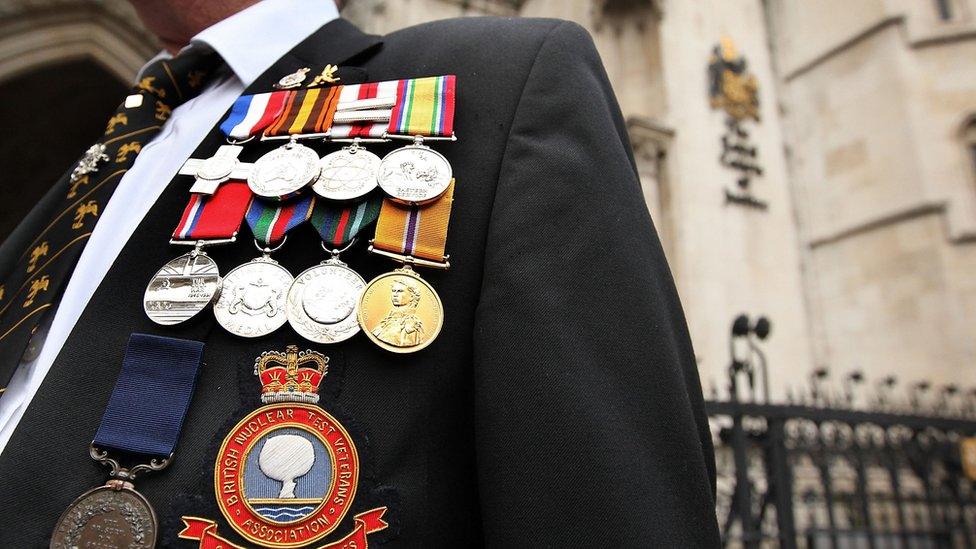
- Published3 October 2022
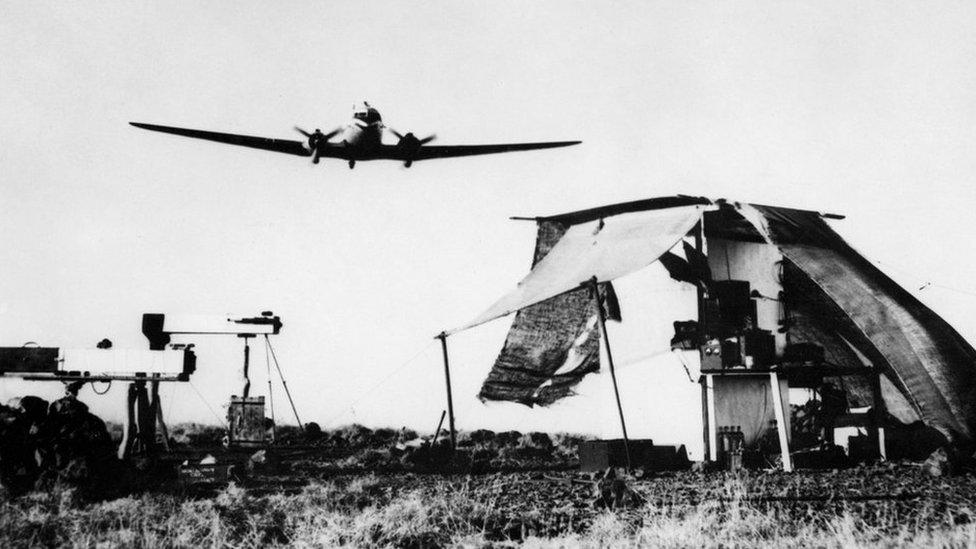
- Published6 September 2022

- Published6 September 2018
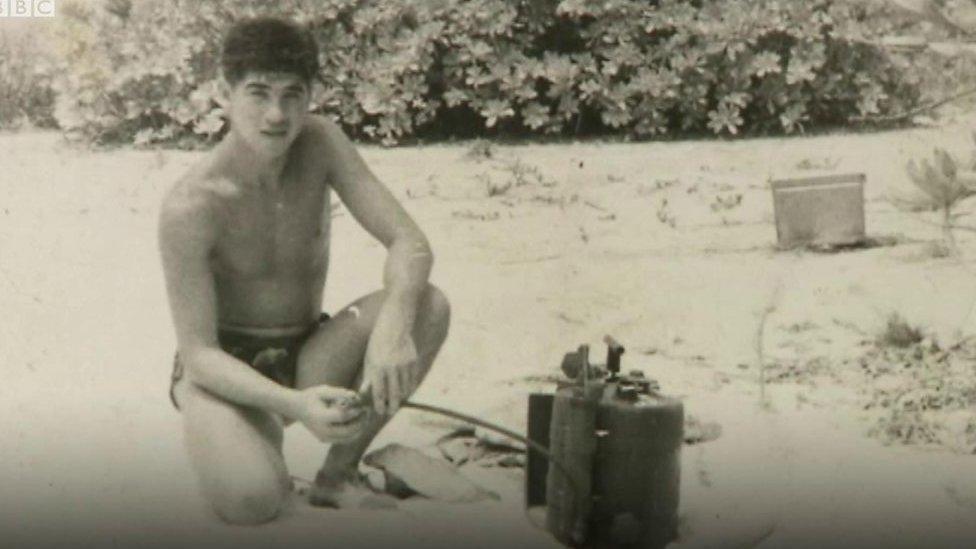
- Published15 March 2012
